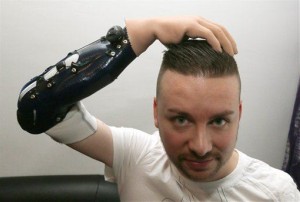Ben Affleck Asked PBS to Not Televise Family Past

Photo by Saul Loeb/AFP/Getty Images
http://www.slate.com/blogs/the_slatest/2015/04/19/ben_affleck_asked_pbs_to_ignore_slave_owning_family_past_in_finding_your.html
1) How do historians get a sense of the past? What is the most reliable evidence in genealogy? To what degree should you trust a historian hired by PBS over one from the History Channel?
2) Why might Ben Affleck want to have his ancestors' activities hidden from the public? Who might take offense if Ben Affleck has slave-owning relatives? Why? Why might someone be more likely to see his next movie because of his request? Less likely? Why might an employee at ancesty.com be excited at this news?
3) In what ways is genealogy connected to the Batman story? How is this connected to science? To the debate of whether to call the actions of Turks against Armenians 100 years "genocide" or not?
4) What might happen if the information was shown on TV? What if celebrities are hesitant to go on these shows for fear of public response?
5) To what degree are we responsible for the actions of our ancestors? Can injustice be meaningfully forgiven many years after the fact?
Extension Activities:
1) Students will research their own backgrounds and pick out their most admirable ancestor and the one they might be most likely to keep hidden.
2) Students may create a fake family tree for a favorite fictional character and describe in biographical detail two ancestors that the fictional character would want to highlight.
3) Students can research "pedigree collapse" and describe in mathematical terms why it's virtually impossible to not be related to a random celebrity (political, movie, sports, historical)





